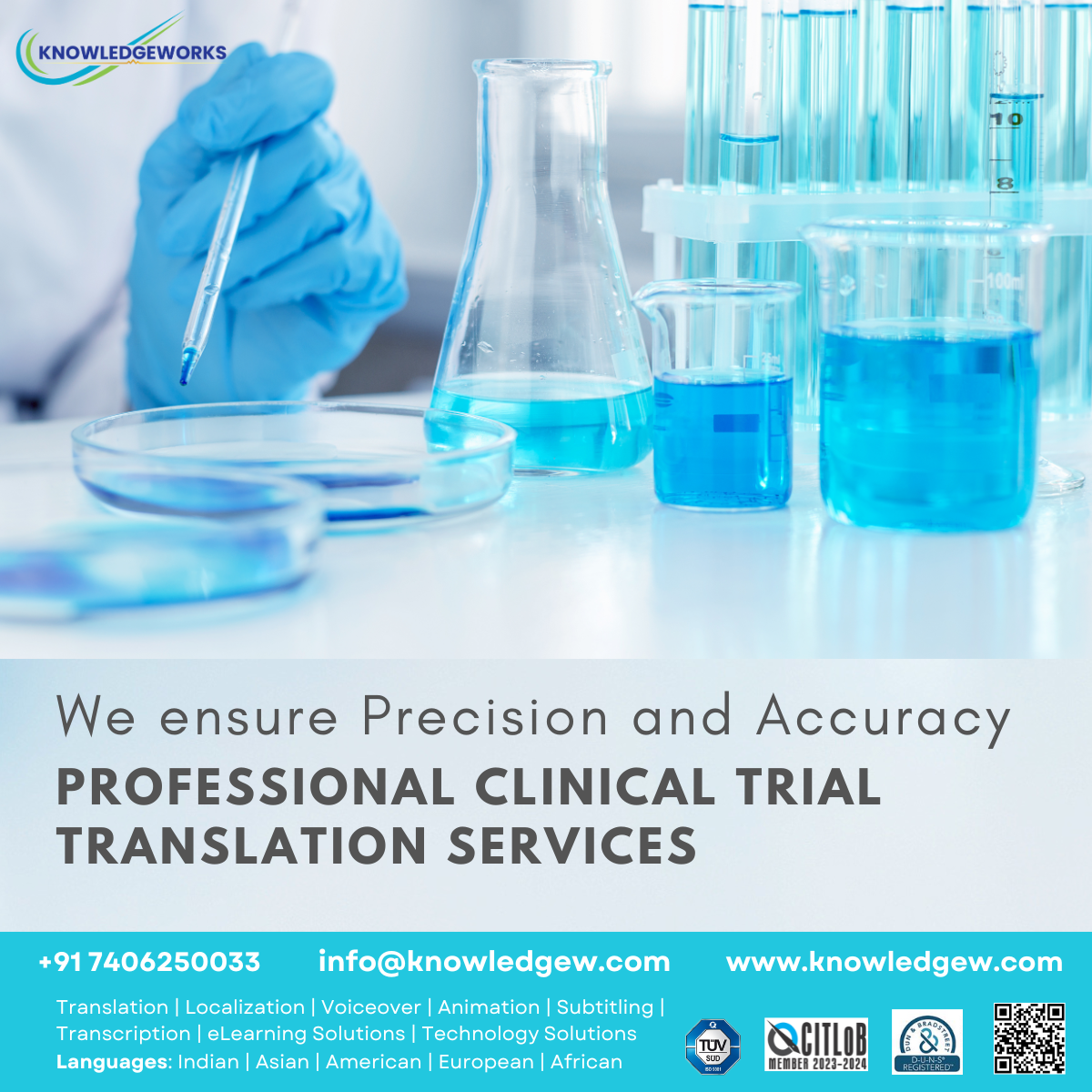Clinical research is increasingly a global endeavour. From multi-country trials to international drug approvals, organisations must navigate a complex web of regulations across borders. Precise, regulation-compliant translations are key to achieving success in global clinical trials. These translations are not simply about converting words—they ensure clarity, compliance, and safety in all the regions where a product is tested or marketed.
This article examines the key reasons why expert regulatory document translation services in India are important in clinical research and regulatory affairs.
1. Global Clinical Trials Require Local-Language Submissions
Regulatory authorities such as the U.S. FDA, the European Medicines Agency (EMA), Japan’s PMDA, and Health Canada all require documents in specific languages for review and approval. Even within the EU, different member states have their own linguistic requirements.
Clinical documents that often require translation include:
- Investigator brochures (IBs)
- Clinical trial protocols
- Informed consent forms (ICFs)
- Case report forms (CRFs)
- Ethics committee submissions
- Common Technical Documents (CTDs)
Without professionally translated documents, a sponsor may face delays, rejections, or non-compliance findings during trial setup or approval processes.
2. Regulatory Compliance Depends on Precision
Regulatory authorities demand that documents follow strict standards in terminology, format, and content. Errors in translation can result in:
- Misinterpretation of inclusion/exclusion criteria
- Misrepresentation of safety data
- Delays in protocol approvals
- Increased risk of trial non-compliance or suspension
Professional translation services ensure regulatory language is conveyed with technical accuracy, preserving the intent and legal standing of the original content.
3. Protecting Patient Safety and Ethical Integrity
When clinical research is conducted across diverse populations, participant-facing documents such as ICFs must be clearly understood by local participants. Mistranslations in these documents can compromise:
- Informed consent (leading to legal and ethical issues)
- Patient comprehension of risks and benefits
- Trust in the trial process
Certified translation ensures that patients fully understand their rights, participation details, and potential risks—essential for ethical and compliant research.
4. Medical and Regulatory Terminology Requires Specialised Expertise
Translating regulatory documents demands more than general language fluency. It requires:
Deep knowledge of medical and scientific terms
- Thorough understanding of ICH guidelines, Good Clinical Practice (GCP) standards, and global regulatory documentation formats.
- Use of standard terminology systems like MedDRA and WHO-DD
- Only specialised translators trained in clinical and regulatory science can ensure accurate, context-appropriate language that meets global expectations.
5. Time Sensitivity and Efficiency
Clinical development timelines are tightly regulated. Any delays in document submissions due to translation issues can push back:
- Trial start dates
- Regulatory approvals
- Product launch timelines
Professional language service providers (LSPs) offer scalable solutions with 24/7 support, rapid turnaround, and translation memory tools to expedite large volumes while maintaining consistency and quality.
6. Risk Mitigation and Audit Readiness
Regulators may audit trial documentation at any time. Poor translations can:
- Be flagged in inspections or audits
- Result in findings that require CAPA plans
- Damage sponsor or CRO credibility
By working with ISO-certified translation providers with secure and validated workflows, sponsors can ensure that every document—from protocol to final CSR—is audit-ready and traceable.
Conclusion
Translation of regulatory documents is not a secondary task—it is a core operational and compliance function in clinical research. As clinical trials expand across languages and borders, sponsors must invest in qualified, experienced translation services to ensure their studies are safe, ethical, and regulator-approved. High-quality translation protects not only timelines and submissions—but ultimately, patient lives and public trust.





Comments